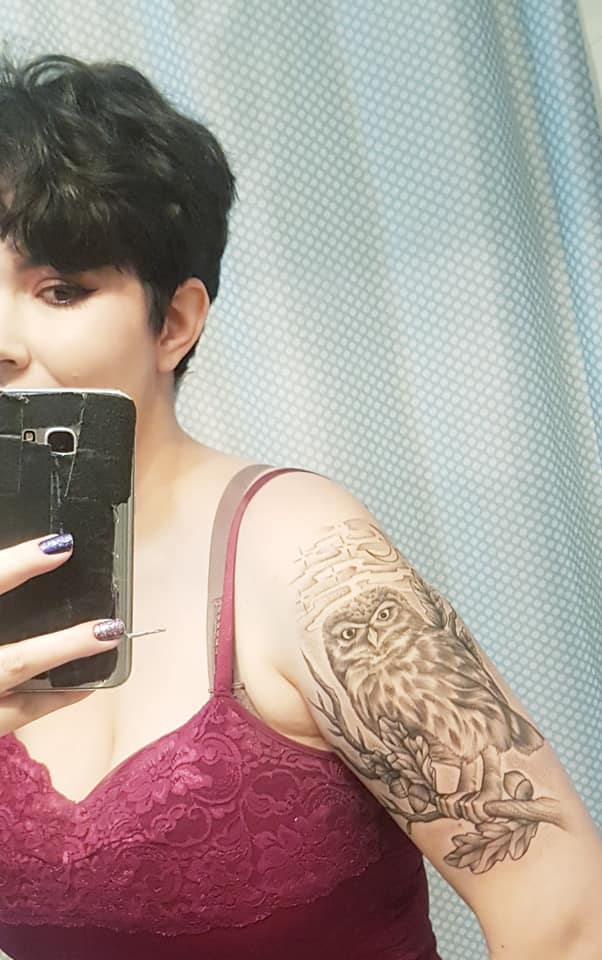
Tips, tricks, and considerations for getting inked
By Bex Peterson, Editor-in-Chief
Tattoos have become something of a mainstream phenomenon in the past few decades—which is honestly great. I love my tattoos a lot and I have only had good experiences getting them, and I really want that for everyone who decides to go under the needle. With that in mind, here’s some advice to consider for your first tattoo.
Do your research
I have friends who got their first tattoo by just walking into a shop, picking a flash they liked, and walking out freshly inked on a whim. These friends are braver and stronger than me and should be both feared and respected. However, if you’ve never gotten a tattoo before, I highly recommend researching everything—and I mean everything. Research the artist, research the reputation of the shop they work out of, research the recovery time and tattoo aftercare methods, research, research, research! This will not only prepare you so you know what to expect but also give you an edge in terms of being able to identify a shady situation before you drop money on a bad tattoo.
Tattoos aren’t cheap!
Trust me—you don’t want a cheap tattoo. If an artist is offering to tattoo you for under $120 to 200 an hour and they aren’t an apprentice, really examine that artist’s portfolio. Odds are there’s a reason why they’re lowballing the price. Think of it this way: A good tattoo is something that will stick with you for life. This is one of those few things you’re literally doing entirely for yourself and your own self-image. You deserve a tattoo that’s going to stand the test of time and make you feel good for as long as you live, and that kind of investment doesn’t—and shouldn’t—come cheap.
Pick an artist by competence and style
I like to spend hours looking through tattoo artists’ portfolios, and I usually look for two things: Overall competency and whether their style lines up with what I want on my body. Competency-wise, you want to look for clean lines (lines that are smooth instead of jagged and without “blow-outs”—splotches of ink caused by inconsistent needle depth) and tattoo composition (how the tattoo works with the shape of the body). The style part is up to you, of course, but I really recommend keeping in mind what a tattoo artist’s speciality is. If all you see in an artist’s portfolio is realism and greyscale work, they’re not going to be too excited about getting a request for a full-colour watercolour geometric piece.
Keep in mind how tattoos age depending on ink and placement
Some of the current tattoo trends—white tattoos, watercolour tattoos, et cetera—look pretty when fresh, but tend to age poorly. White ink, for example, often turn yellow with age, and watercolour tattoos can fade into splotchy, bruise-like messes. Tattoo placement will also affect how the tattoo ages. Finger tattoos, in particular, fade to almost nothing very quickly. If you’re willing to put in the time and money for upkeep and refresh your tattoo time and time again, that’s absolutely an option; I don’t want to scare people off getting the tattoos they want! But it’s important to know what you’re getting into in the long run.
Listen to your artist!
Your tattoo artist will know more about tattoos then you will ever learn from googling (or at least, they should). Your artist will tell you if your tattoo design is too small, if you’re getting a tattoo upside-down (yes, that’s a thing), or if your tattoo placement needs adjusting due to how your body moves and ages. It might feel scary taking advice on something so personal, especially if you’ve set your mind on the tattoo looking a certain way. But believe me, your artist only has your best interests at heart. Prepare for some flexibility when you go into your consultation and it’ll pay off in the long run.
Tattoos are a medical procedure and should be treated as such
This is why research is so important—you want to know that the shop you go into is clean and has a good record for safety and sanitization. Tattoos are literally a kind of open wound; your tattoo artist will know and respect this, and it’s important that you do too. Take their aftercare instructions seriously. Keeping a tattoo clean and dry not only promotes faster and better healing for an ideal finished product but can keep you from getting the sort of nasty infection that naysayers use as cautionary tales against tattoos in the first place. Don’t get a tattoo right before a beach vacation, keep it out of the sun, and for the love of God, when it gets itchy, smack it—don’t scratch it!

